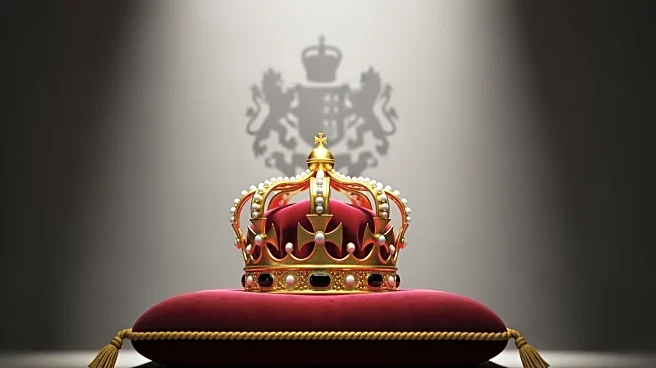What's Happening?
King Charles III has begun the formal process to remove Prince Andrew's royal titles, including the style of 'Royal Highness,' without involving Parliament. Andrew will now be known as Andrew Mountbatten
Windsor and will vacate his residence at the Royal Lodge. This decision follows allegations related to his connections with Jeffrey Epstein, a convicted sex offender. Despite denying the allegations, Andrew has agreed with the decision, acknowledging the distraction his situation poses to the royal family.
Why It's Important?
The removal of Prince Andrew's titles is a significant action by King Charles III, reflecting the monarchy's effort to address controversies and maintain its integrity. This decision may influence public opinion, potentially restoring trust in the royal family. It also underscores the importance of accountability within the monarchy, setting a precedent for handling similar issues. The move could impact Andrew's public life and his daughters' status, although they are expected to retain their titles.
What's Next?
Andrew is expected to move to a property on the private Sandringham estate, with future accommodations privately funded by the King. The palace has not disclosed further details. This development may lead to increased scrutiny of Andrew's past actions and associations, as well as discussions about the royal family's role in addressing controversies. The removal of Andrew's titles may prompt questions about the status of his daughters, Princess Beatrice and Princess Eugenie.
Beyond the Headlines
King Charles III's decision to act without parliamentary involvement highlights the use of royal prerogative in addressing internal matters. This approach allows the monarchy to act swiftly, avoiding parliamentary delays. The situation raises ethical questions about the balance between royal privilege and accountability, as well as the impact of personal actions on public roles within the monarchy.









